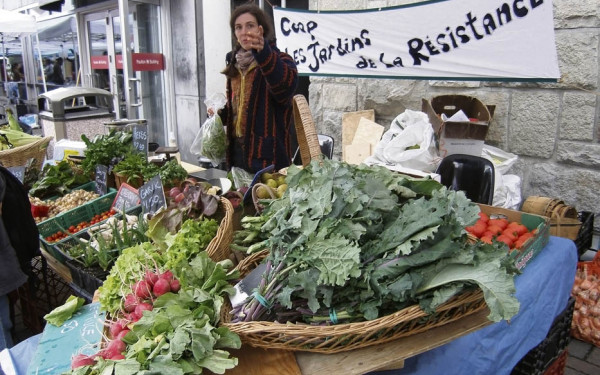Expanding Eating Options on Campus
SCPASA Make Post-Chartwells Plans
Concordia is a diverse community and according to its students, it needs equally diverse food options.
As part of the School of Community and Public Affairs Student Association’s new campaign Fight the Causes, a meeting was held on Nov. 1 on the seventh floor of Concordia’s Hall Building to discuss what can be done to offer students more sustainable and healthy options while eating on campus.
The current monopoly-holding cafeteria company Chartwells will see its contract expire by 2015.
In preparation for renegotiations, student groups are starting to discuss new alternatives and potential options for bringing different food to students’ plates.
“Right now we’re building the foundation with research so that when we do come to the negotiating table we are organized, have a cohesive vision and an alternative to offer rather than just saying, ‘No, we don’t want a Chartwells contract,’” said Andrew Roberts, Concordia Student Union VP Sustainability.
Students from the CSU, the SCPASA, People’s Potato and Sustainable Concordia were present at the meeting, among others.
“I want to see the emancipation of Concordia students from industrial food,” said Dr. Satoshi Ikeda, Canada Research Chair in the Political Sociology of Global Futures and professor in the Department of Sociology and Anthropology at Concordia.
Satoshi spoke about the negative effects that mass-produced and genetically modified food has on one’s body—saying that students need to protect themselves and demand for healthy options in cafeterias.
“We are trying to evaluate problems on campus and one of them is the lack of food options in the corporate monopoly of Chartwells and Tim Horton’s on campus,” said Anthony Garoufalis-Auger, Executive Secretary of the SCPASA.
“Why isn’t there more of a diversity of food and isn’t there healthy food options? Why is it that People’s Potato, which is a volunteer-run initiative, is the one that’s offering the healthier food?”
Chartwells has been criticized by students in residence for not having diverse food options and not having enough vegetarian or vegan options available for student’s buying into in the “all-you-can-eat” plans.
At Concordia, meal plans are mandatory for students in residence—thus the majority of these students eating all, or at least most, of their meals at one of the Chartwells cafeterias. They have already paid thousands of dollars for them without the choice to spend elsewhere.
While food choices at the SGW campus may seem to some as a non-issue because of the plethora of off-campus dining choices downtown, such is not the case at the Loyola campus where there are considerably fewer options.
“It’s a system that doesn’t give residence students any options whatsoever as to where they can eat,” said Roberts.
The idea of instituting a student-run cafeteria and resurrecting the Hive cafe project were issues discussed during the meeting.
These conversations resulted in the creation of three committees to come up with an alternative to Chartwells during the negotiation process next semester.
Update: The Link originally reported the Chartwells contract is going to expire in the summer of 2014, the contract will actually expire in 2015. The Link regrets the error.

_900_598_90.jpg)
_600_832_s.png)



_600_375_90_s_c1.jpg)
.ed2.WEB_600_375_90_s_c1.jpg)